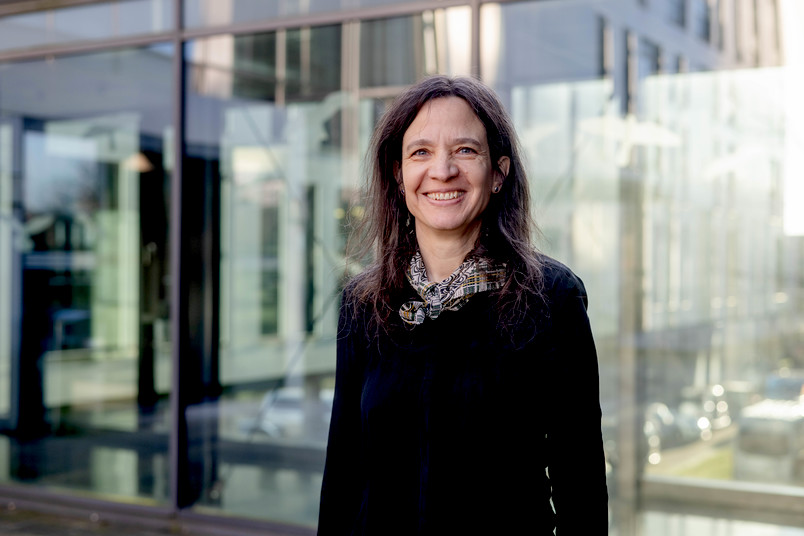Let's think about a donut. How can the surface of the donut be described mathematically? For example, you could define individual points on the surface and start connecting them with curves until polygons are created. These in turn could be refined with further curves until they have all three sides. Mathematics views all of these curves or diagonals as objects of a category or as variables. So what is the connection between the abstract algebraic objects and the curves on the surface of the donut? Karin Baur deals with such combinatorial questions in her everyday research. The mathematician has held the professorship for pure mathematics at the Ruhr University Bochum since the beginning of April 2024.
Abstract and diverse
“Pure mathematics is relatively abstract. There are few applications. “We are mainly concerned with basic research,” says Karin Baur about her department. The mathematician has specialized in pure mathematics in the still young field of cluster algebras and the connection to the combinatorics of surfaces and would like to continue researching this in Bochum in the coming years.
"I want to understand which algebraic structures can be associated with which surfaces."
– Karin Baur
“I want to understand which algebraic structures can be associated with which surfaces. There is still a lot to explore. The area is diverse, lively and interactive,” says Baur. “Take, for example, the shallow water waves on a beach. These form geometric shapes on the surface that look like polygons and are therefore reminiscent of cluster algebras.
Childhood dream of being a mathematician
The Swiss native has been passionate about algebra, representation theory and especially cluster algebras since studying math; She discovered her fascination for mathematics in her childhood. “Even as a child, I loved puzzles, puzzles, recognizing structures and figuring things out. My parents are not academics, but have always said that mathematics is fun and exciting. So I knew this was something cool. “Math was never a scary subject,” says Baur.
"I remained fascinated by mathematics."
– Karin Baur
“I have always been interested in mathematics. As a child, other classmates wanted to become a train driver, but then changed their minds. My fascination with mathematics remained. “After school, however, I was hesitant to go straight into this direction without trying out other interests,” Baur continues. “After graduating, I first got a taste of medicine and then tried out the humanities for a few months in Paris. But I quickly missed mathematics and its clear rules.” And so Baur decided to study mathematics; She minored in philosophy and French.
Promote female mathematicians
In addition to her enthusiasm for variables, categories and combinatorics, the mother of four children is equally keen to support schoolgirls, students and young researchers in their desire to deepen their knowledge of math. “I often observe in the basic phase that female students are very insecure, even though they can sometimes do more than their male fellow students,” says Baur. This often continues over the course of their careers. Women are less likely to submit papers to conferences and are also less likely to appear there. “At a recent conference I was the only woman who presented; the other seven were men. There are so many outstanding female mathematicians. If you look carefully, you’ll find them.”
"We just need to tell our students and researchers that they are good more often."
– Karin Baur
How do you take away the insecurity of young women? Baur herself found coaching helpful at the start of her scientific career and also recommends it to young researchers. “A postdoc recently asked me for advice. She had a great CV. I told her that and she felt very happy and empowered. We need to tell our students, researchers and, in general, our young scientists more often that they are good.”
To person
- 1990 to 1997 studied at the University of Zurich: mathematics, philosophy, French
- 1997 to 2002 doctorate
- 2003 to 2005 postdoc at the University of California San Diego, CA, USA
- 2005 to 2007 postdoc at Leicester University, UK
- 2007 to 2011 SNSF professor at ETH Zurich
- 2011 to 2018 university professor at the University of Graz
- 2018 to 2024 Professor at the University of Leeds, UK
